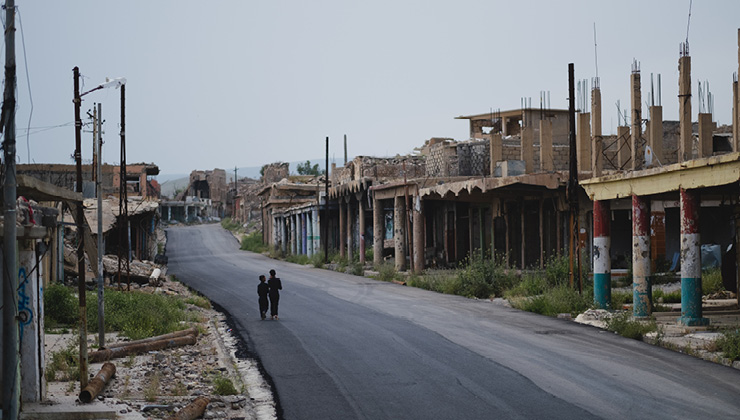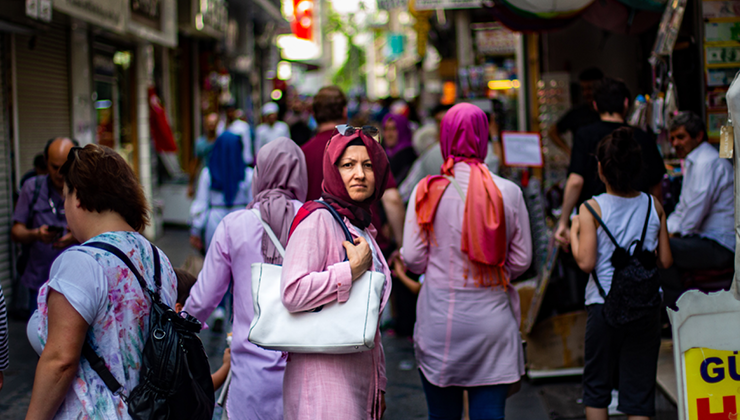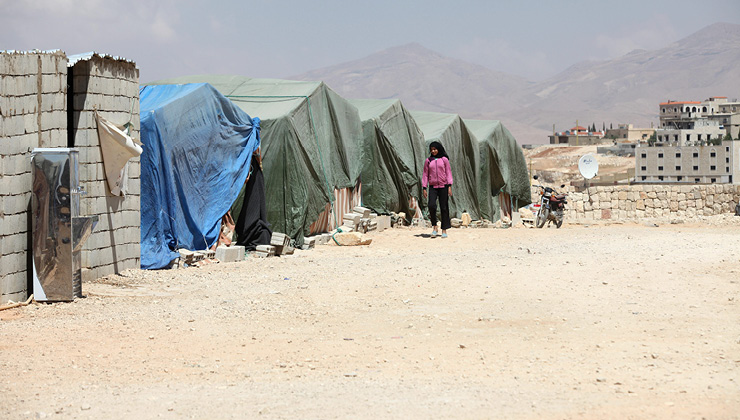Anwar Mhajne, Luna K.C and Crystal Whetstone argue that there is an urgent need for cyber safety for women and girls that could be addressed through the Women, Peace, and Security (WPS) agenda, which promotes attention to, and the protection of, women and girls in both conflict and post-conflict contexts.
In recent decades, the use of cyberspace, defined as the virtual space where internet users around the world can communicate and access information, has grown significantly. Cyberspace has no geography, limitless information, and is highly accessible for users, making it hard to regulate and ensure human rights and women’s rights are respected. Cyber is a gendered space, reflecting and amplifying systems of inequalities that exist offline, and is often hostile to women and girls.
Numerous reports document trolling, sexual harassment, stalking, and other threats faced by women and girls online. Specific abuses take many forms, including gender-based slurs and harassment, nonconsensual photography, defamation, death threats and rape threats, mob attacks, hate speech, stalking, unsolicited pornography, online impersonation, spying, and sexual surveillance.
In conflict-affected countries, cyberspace can pose a high threat for marginalised groups, including women. For example, recently in Myanmar, cyberspace worsened the ongoing conflict by spreading fake news, disinformation, and propaganda. It also gave rise to sexual violence against women and girls. For example, a recent study on Myanmar youth Save the Children found that many girls encountered online harassment. Some girls had social media accounts created in their name, without their consent, which included photo-shopped and explicit photos. The girls’ personal security was threatened when strangers sent them inappropriate social content in response to these fraudulent accounts and engaged in name-calling and slut-shaming of the girls.
In conflict and pre-conflict zones, cyberspace offers fertile ground to escalate tensions, propaganda, and misinformation. It provides easy access for recruiting paramilitaries, foreign fighters, and planning attacks. For example, ISIS and Boko Harmam used cyberspace – such as videos, blogs, and social media messaging – to recruit young girls.
Similarly, in a post-war country like Nepal, nearly 70 per cent of gender-based violence complaints made to police are cybercrime and some women and girls even face death threats. Recently, a 24-year-old woman’s photo circulated online on Facebook, Twitter, and private chats without her consent. She received misogynistic and sexist messages. In Sri Lanka, another post-conflict country, a recent report shows that women and people of the LGBT community are targets of online hate crimes such as the non-consensual dissemination of intimate photos and videos.
Bringing feminist analysis to the cybersphere sheds light on how gender and other inequalities exist in cyberspace. There is also a need for finding an international legal framework to regulate and address the insecurities that women, girls, and other marginalised groups face in the cyber realm.
So far, cybersecurity, defined as “the preservation – through policy, technology, and education – of the availability, confidentiality, and integrity of information and its underlying infrastructure to enhance the security of persons both online and offline,” has been a key focus for policymakers and defense institutions. Weaponising a civilian space has enormous implications for human rights, especially for women who are already disadvantaged in conflict settings. While national security matters, we suggest that cybersecurity needs to take human rights seriously by centering people’s empowerment and well-being.
We see a need to extend the WPS agenda, including 1325 National Action Plans (NAPs), to the cyber realm to achieve sustainable peace. The WPS agenda promotes human security by encouraging the participation of women in peace and security governance. We envision 1325 as protecting women, girls, trans, queer, and other sexual and gender minorities from online GBV and ensuring equal access to cybersecurity both in terms of access to cyber technologies and participating in cybersecurity governance.
Weaponising a civilian space has enormous implications for human rights, especially for women who are already disadvantaged in conflict settings. While national security matters, we suggest that cybersecurity needs to take human rights seriously by centring people’s empowerment and well-being.
The WPS agenda could be used in cyberspace to:
- Ensure women from diverse backgrounds are in decision-making positions in cybersecurity governance and expanding the number of women in cybersecurity across the board, as well as women’s equal access to cyber technologies. As Brown and Pytlak explain, participation in cyber is critical to representation. Without women’s full and equal participation, their perspectives are unlikely to be represented within cyber policy or their perspective taken seriously in cyber policy.
- Provide for the application of a feminist intersectional approach regarding cyberspace to understand how women, girls, and diverse gendered categories experience cyberspace differently. Cyberspace is not equal, and a one-size-fits-all policy does not work for everyone, particularly, women and girls in conflict-affected contexts, who might face unique challenges while using the cyber realm due to weak cyber laws.
- Launch gender-disaggregated data collection on cyber-space tools and resources countries and businesses in the private sector (Facebook, Twitter, Tok-tok) are creating and utilising to make cyberspace safer by protecting the data privacy and security of marginalised groups, including women and girls as well as trans, queer, nonbinary and other sexual and gender minorities face in cybersphere.
- Promote training for cybersecurity professionals, scholars and policymakers on gender-specific issues in cybersecurity and recognise that achieving sustainable peace requires achieving a safe cyberspace.
We build on recent work by Feminist IR scholars who have made a case for using 1325 and the WPS agenda beyond conflict settings. For instance, Laura Shepherd argues that since no country is violence-free or full of gender equality, there is a need to apply 1325 beyond war and postwar contexts. Similarly, in this piece, we try to expand the scope of application for the WPS agenda to include cyberspace in all contexts, with a focus on conflict-affected countries. To do so, more feminist analysis is needed to help us understand how complex social identities in the cyber realm shape users’ experiences and their interaction with power structures.
Feminist analysis can shed light on how gender and other inequalities operate in cyberspace and impact human rights and uniquely impact women and other marginalised groups living in conflict-affected countries. We see the WPS agenda as a starting point for scholarly and policy-focused feminist cyber engagement.
This blog was published with the support of a European Research Council (ERC) grant under the European Union’s Horizon 2020 research and innovation programme (Grant agreement No. 786494), whose funds in part support this space.
The authors would like to acknowledge Sara Fischer (Georgetown University) for reading a previous draft of this blog and offering her excellent feedback.
The views, thoughts and opinions expressed in this blog post are those of the author(s) only, and do not necessarily reflect LSE’s or those of the LSE Centre for Women, Peace and Security.





